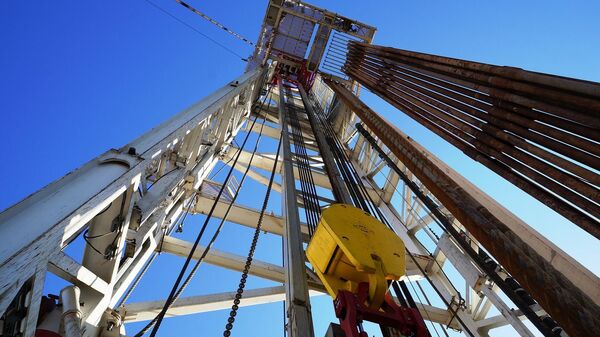A large build in stockpiles of US crude, gasoline and distillates in weekly data published by the Energy Information Administration (EIA) also pressured oil prices lower.
West Texas Intermediate (WTI), the benchmark for US crude, settled down $3.09, or 5 percent, at $59.61 on Wednesday. It settled about 1 percent in the previous session.
Brent, the global benchmark for crude, was down $2.40, or 3.5 percent, at $65.70 by 4:30 PM ET (21:30 GMT). Like WTI, Brent had lost about 1% in the previous session.
Oil prices rallied sharply at the start of the week in the aftermath of Friday’s US airstrike that killed Iran’s top general Qassem Soleimani in Baghdad.
In Wednesday’s early trade, WTI hit $65.65, a peak since April, while Brent soared to $71.28, its highest since mid-September, after Iran’s rocket attacks on two US-Iraqi airbases.
"Oil market is in trouble", Gary Ross, chief executive at Black Gold Investors in New York, said in a tweet. "Crude is oversupplied, products are weak and financials are very long! It’s only hope was a geopolitical loss of supply and that’s fading".
Oil market is in trouble. Crude is oversupplied, products are weak and financials are very long! It’s only hope was geopolitical loss of supply and that’s fading
— Dr. Gary N. Ross (@kingofcrude) January 8, 2020
While there has been no direct impact from Soleimani’s death on oil production and shipment, crude traders had priced in a higher element of risk into the market from the potential of an Iran retaliation. Both Iran and Iraq are both members of the Organization of the Petroleum Exporting Countries (OPEC), which together with Saudi Arabia, accounting for about 40 percent of the world’s oil production. On Wednesday, crude tankers deliberately avoid the Strait of Hormuz around Iran to be on the safe side, oil traders said.
Iran’s targeting of the airbases was to retaliate against Soleimani’s killing. But the attacks also did not cause any human casualties. Trump, in an address to the nation, said the United States will never allow Iran to develop nuclear weapons. But he said Washington was still prepared to make peace with Tehran if its leadership "changed its behavior", indicating there would be no immediate US escalation in the conflict.


